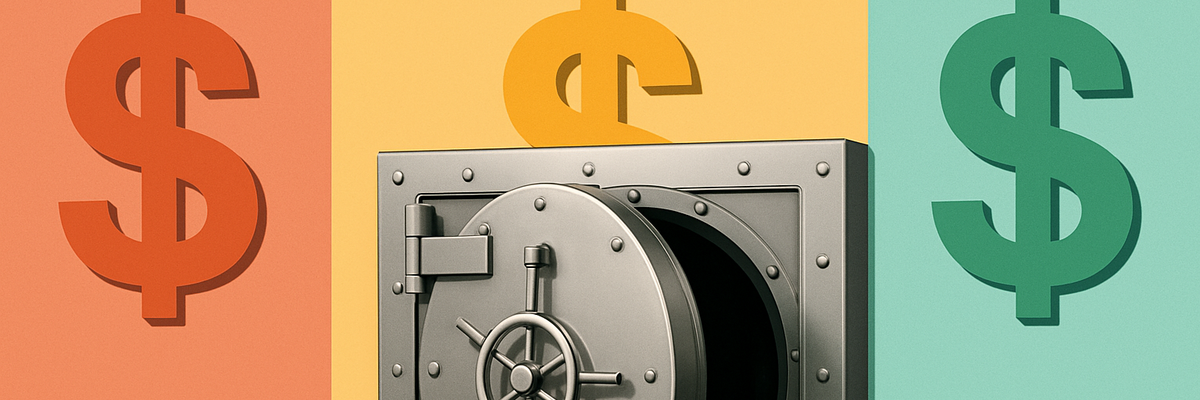$50K in the Bank? Here's When It's Too Much -- and What to Do Instead

Having extra cash in the bank feels responsible. It feels safe. But too much money sitting in a low-rate account isn't security; it's just a missed opportunity.
If you've got $50,000 or more parked in checking or a basic savings account, your money could be working way harder for you. Here's how to know when you're holding too much cash and what to do instead to actually grow your wealth.
When $50K in the bank is a problem
Don't get me wrong: It's good to have a healthy cash cushion. Emergency savings, a buffer for surprise bills, and money for near-term plans needs to stay safe and liquid.
But here's the catch: A lot of people keep way more than they need in accounts paying almost nothing. Big banks still pay around 0.01% APY on standard savings accounts -- think Wells Fargo, Bank of America, Chase. At that rate, $50,000 earns you about $5 a year in interest, which is not exactly building wealth.
Meanwhile, high-yield savings accounts are paying around 4.00% APY or better right now. That same $50,000 could earn $2,000 a year in interest, with the same federal insurance and easy access when you need it.
So, how much cash should you really keep?
Most people should aim for an emergency fund covering three to six months of essential expenses. If you're self-employed or your income is unpredictable, you might want to keep a bit more.
But anything above that? It could probably be safe and working harder for you somewhere else, earning as much as 400 times more than your standard bank account pays.
What to do instead
If you're sitting on extra cash, here are a few simple moves to consider:
1. Open a high-yield savings account
This is the easiest upgrade you can make. High-yield savings accounts are usually online, pay around 4.00% APY or more, and come with the same FDIC insurance as your big bank. You get quick access when you need it, so your emergency fund is still safe and ready.
Right now, CIT Platinum Savings pays 4.00% APY for balances of $5,000 or more. Open an account today to finally start earning what you deserve on your savings.
2. Consider short-term CDs
If you know you won't need part of that money for a few months, a certificate of deposit (CD) could lock in a higher rate. Many banks and credit unions are offering 4.00% or better for 6- or 12-month CDs right now.
Just make sure you're comfortable with the time commitment -- you usually can't pull the money out early without a penalty.
3. Pay down high-interest debt
If you're carrying a credit card balance or personal loan with double-digit interest, using some of your excess cash to wipe it out can be like earning a guaranteed return equal to that interest rate.
4. Invest for long-term goals
Once your emergency fund is covered and debts are under control, think about putting extra money to work in the market. Whether that's a retirement account like an IRA or a regular brokerage account, investing gives your money a shot at growth well beyond what any bank will pay.
The true cost of excess savings
Let's say you're holding an extra $20,000 in cash, on top of your emergency fund.
Here's what that money could grow to in different accounts:
| Years | Savings Account (4% APY) | Investing Account (8% Annual Returns) |
|---|---|---|
| 1 year | $20,800 | $21,600 |
| 5 years | $24,333 | $29,386 |
| 10 years | $29,605 | $43,179 |
| 20 years | $43,823 | $93,218 |
Compound interest is powerful. A small difference in your rate of return makes a massive difference over time in how much you end up with.
Stop letting your extra cash sit idle and start making your money work harder for you today.
Our Research Expert


